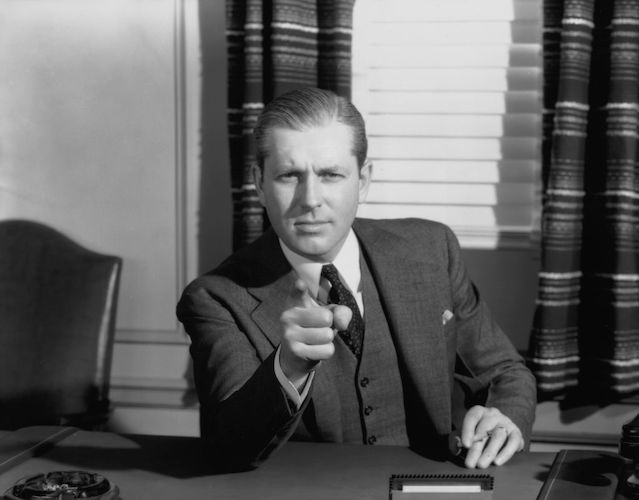
Editor’s note: The following is an excerpted chapter from The Technique of Getting Things Done (1947)by Donald Laird.
There was a stack of printer’s proof waiting for me when I arrived in Seattle, so I planned to correct it right away in a restaurant while I ate.
“You pick out a dollar meal for me,” I told the waitress, thinking she could save me the time of reading the menu and making my selections.
“Don’t you want to pick your own soup?” she asked timidly.
“You go right ahead and select everything,” I answered and began reading the two-foot-long proof sheets.
I finished the soup, continued reading proof while waiting for the next course, and finished several pages, too, before the hesitant waitress approached again, “Which meat course would you like?”
“I don’t care. You go right ahead and choose my entire meal, just as if I were eating in your home.”
But no meat arrived. I looked around for my waitress and saw her in conference with two other waitresses near the kitchen door. She was pointing toward me as she studied the menu, corralling their assistance in selecting my meal.
The blond member of the pair glanced sympathetically in my direction, looked at my whiskers and the long sheets of paper I was scanning. I saw her lips say, “Guess he’s some foreigner and can’t read English.”
But her slouchy, gum-chewing companion had another answer. “Nope,” her lips said, “he’s just some nut!”
The indecisive waitress blew up completely under the strain of making up her mind what to bring me to eat. I had hoped to save time, but her difficulty in deciding trifles wasted the time of at least four people.
Most of us need some sort of training to get into the habit of making decisions more quickly.
Wasting time deciding trifles is one of the big reasons why people do not get more things done. The time itself may not be long, but the habit of indecision is likely to grow on one.
Indecisive people wonder so long what to do or how to do it that they get little accomplished.
They try so hard to decide what is the right thing to do that they do nothing until it is too late.
By trying to be perfect they become second-rate.
Perhaps they do not mean to put things off — they may be sincerely trying to decide what to do — but the net result is procrastination.
P.I.T.T.O.T.
The letters P.I.T.T.O.T. hung in a large frame in Robert Gair’s office.
This tall, curly-headed Scot had been following the advice of those mysterious initials ever since his luckless father had fled to America to evade the Edinburgh sheriff.
Robert himself did not sail quite so hastily as his dad. Fourteen years old, he had to seek an opportunity to work his way across the ocean as a ship’s carpenter first. He found one on an old sailing ship that was blown back across the Great Banks four times and took ten weeks to reach New York harbor.
As soon as he got his feet under him in the New World, he set up a small wholesale paper business, originated the idea of printing a merchant’s name and advertisement on his paper bags. He made the first folding paper box, using a $30, secondhand printing press, and revolutionized packaging methods.
He had his feet on the ground, and no grass sprouted under them. P.I.T.T.O.T. kept him doing things so fast the grass didn’t have a chance.
To Bob Gair and the initiated that slogan meant “Procrastination is the thief of time.”
Indecision — wasting time and brain power over trifles — is the chief cause of procrastination.
Gair, founder of the modern folding-paper-box industry, did not waste either time or brain power. A printer’s blunder, one April morning, gave him the idea for making folding paper boxes. By nightfall the same day he was producing them.
He did not let opportunity slip by while trying to make up his mind. He decided right on the spot and went to work on his decision.
Quick Decisions Are Usually Sound Decisions
Henry Ford, like most men who have founded great institutions, had the priceless habit of making decisions quickly. This is one reason why he has been able to build up, singlehanded, a business more successful than many that are guided by conference discussions. A group of men, such as a board of directors, takes a long time to reach decisions, and the decisions it makes are often the results of compromise.
Quick decisions, strangely enough, are more likely
No comments:
Post a Comment